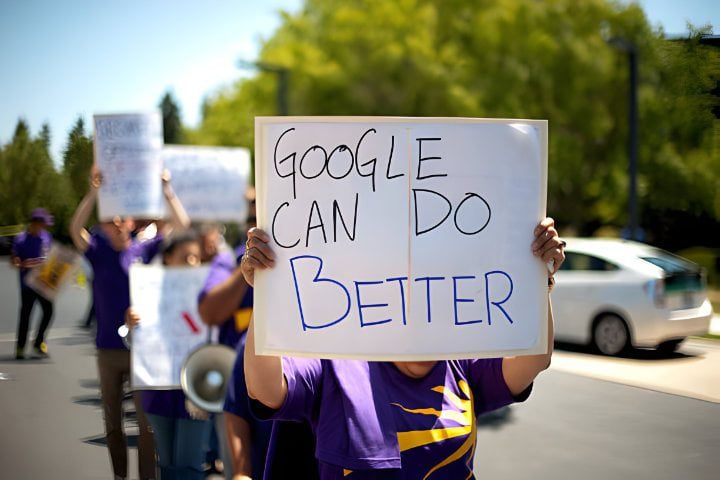CUET UG New Media
Impact of Internet on the New Information Order
The Internet has completely transformed how we consume and engage with information in today’s digital age. It has also significantly impacted our society and our perception of the world.
The internet has completely transformed how we obtain news and information, becoming our main source of knowledge. Information is readily available 24/7, shaping our beliefs, opinions, and actions in unprecedented ways.
Considering the internet’s significant influence, we must be mindful of today’s complex digital landscape, particularly its socio-political impact, the potential for information manipulation, and the importance of media literacy to navigate this dynamic environment.
The Impact of Social Media on the Political Landscape
The impact of the internet, particularly social media, on the political landscape in India has been significant.
Direct Communication with Constituents
Indian political leaders and parties have embraced social media platforms like X (formerly Twitter), Facebook, YouTube, and Instagram to communicate directly with their supporters and constituents. Prime Minister Narendra Modi, for instance, is one of the most followed world leaders on social media, using these platforms to share updates, rally support, and engage with the public.
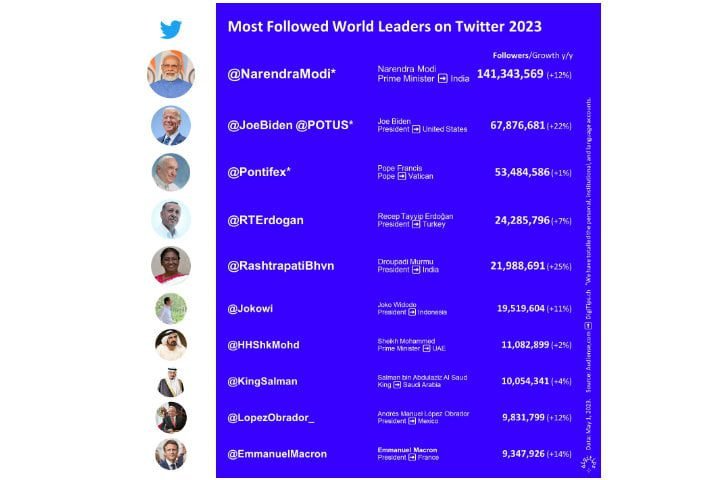
Amplification of Political Movements
Social media has played a crucial role in amplifying and mobilizing various political movements in India. For instance, online mobilization and social media campaigns helped the Anna Hazare-led Anti-Corruption Movement gain significant momentum in 2011.
The impact of internet was also evident in the 2019 general elections, where major parties leveraged social media for voter outreach and opinion shaping. The BJP’s #MainBhiChowkidar campaign and the opposition’s #ChowkidarChorHai battle played out heavily online.
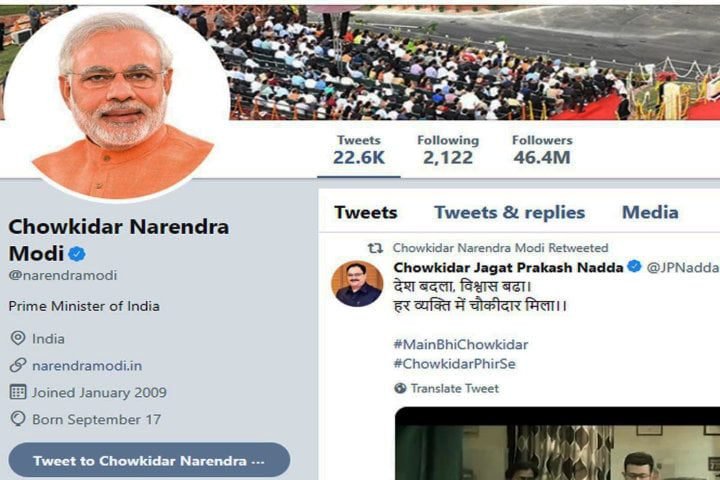
Political leaders used X for direct communication, while parties deployed targeted ads, memes, and WhatsApp forwards to mobilize supporters and sway undecided voters. Election campaigns also witnessed trolling, fake news, and bots being weaponized to mislead voters.
Similarly, social media significantly amplified the anti-CAA (Citizenship Amendment Act) protests in 2019–20. Students and activists used platforms to organize nationwide demonstrations, disseminate information, and document police action.
Hashtags such as #CAAProtests and #RejectCAA went viral, while protest art, slogans, and citizen journalism spread rapidly online, shaping the narrative. Misinformation and propaganda around the CAA protests fueled social divisions.
The widespread farmers’ protests against new agricultural laws in 2020–21 showcased social media’s power to mobilize and sustain a mass movement.
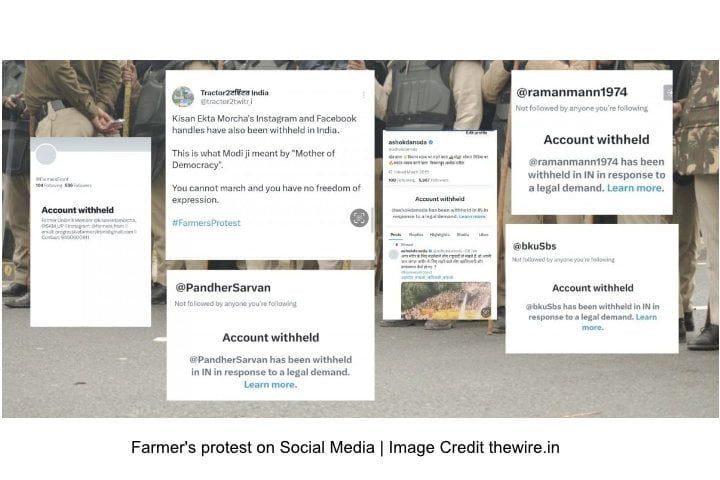
Farmers extensively used X, Facebook, and WhatsApp to coordinate protests, share updates, and garner global support. Hashtags like #FarmersProtest and #StandWithFarmers trended for months, even drawing international attention.
Spread of Misinformation and Fake News
The rapid dissemination of information on social media has also led to the proliferation of misinformation and fake news in India’s political landscape.
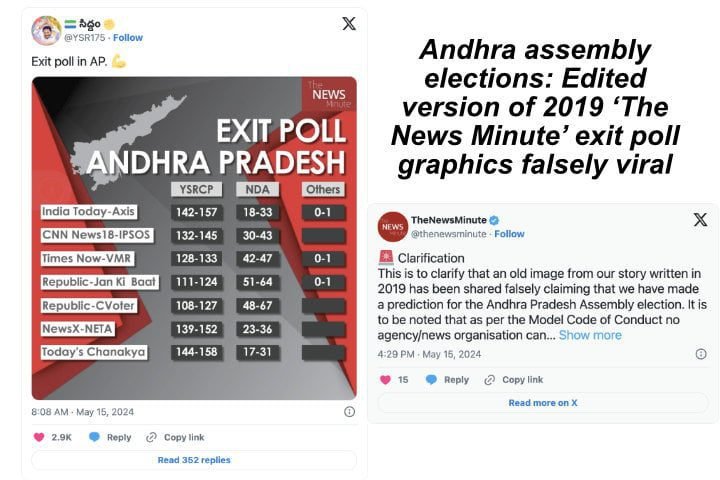
This has been a major concern during elections, with political parties and individuals using social media to spread false narratives and manipulate public opinion.
The Role of Big Tech Companies in Shaping Public Opinion
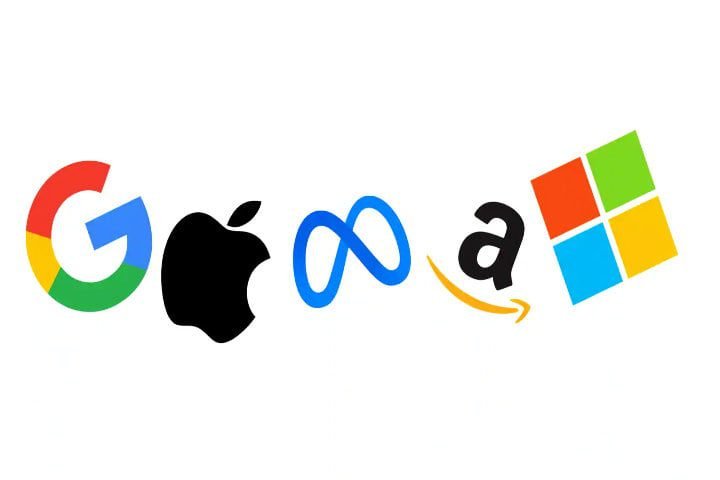
In the digital age, big tech companies play a significant role in shaping public opinion. With their vast reach and influence, platforms like Facebook, Alphabet (the parent company of Google and YouTube), and Meta have become powerful gatekeepers of information. These tech giants control what content users see through algorithms that prioritize certain posts over others.
By determining what news articles or social media posts are displayed prominently, these companies have the ability to sway public discourse on important issues. The way information is curated and presented can impact people’s perceptions and beliefs.
It is crucial for users to understand how tech companies operate and recognize potential biases in the content they consume online.
Information Curation and Manipulation
Online platforms, such as social media networks and search engines, use algorithmic filtering to curate and personalize the content users see based on their prior interactions, interests, and behaviors. These algorithms analyze user data, such as search history, liked posts, and browsing patterns, to determine what content is most relevant and engaging for each individual user.
Filter Bubbles and Echo Chambers

Social media platforms like Facebook and X’s algorithms primarily expose users to content aligning with their beliefs and preferences. This can reinforce biases and limit exposure to diverse perspectives, deepening societal divisions along political lines.
While personalization can enhance the user experience by showing relevant information, it can also create filter bubbles and echo chambers. Filter bubbles occur when users are repeatedly exposed to content that aligns with their existing beliefs and preferences, limiting their exposure to diverse perspectives. Echo chambers reinforce and amplify these existing views by surrounding users with like-minded individuals and content.
During the 2024 general elections in India, many WhatsApp groups became echo chambers for political propaganda. Supporters of the BJP and opposition INDIA parties forwarded messages that aligned with their biases, often including misinformation and inflammatory content. This heightened partisan divides and made constructive dialogue difficult.

Algorithmic filtering can also impact the visibility and reach of social movements and activist campaigns. It has the potential to amplify or suppress certain voices and narratives based on users’ online behavior and preferences.
The protests against the Citizenship Amendment Act (CAA) and the National Register of Citizens (NRC) led to the formation of echo chambers on both sides. Pro-CAA groups shared content depicting protesters as “anti-national,” while anti-CAA voices amplified narratives of state repression. Both groups often ignored facts that contradicted their beliefs, and Twitter debates descended into name-calling and trolling, reflecting entrenched divisions.
Echo chambers have made events like the Pulwama attack and India-Pakistan tensions more extreme. Aggressive content and conspiracy theories spread quickly on social media, making it hard to hear more balanced views.
Advertising Practices

Big tech companies’ targeted advertising models can also shape public opinion. By presenting ads based on user data and interests, these platforms can reinforce or introduce new perspectives to individuals, potentially influencing their views on various topics.
The rise of clickbait headlines and sensationalized content has made distinguishing between news and entertainment difficult. This often results in one-sided stories and biased reporting, affecting how people understand current events.
Understanding how algorithmic filtering works can help users diversify their online consumption habits. This can include actively seeking out alternative sources of information, following different perspectives, and being mindful of the algorithms’ influence on their online experience.
Laws and Regulations
Big tech companies’ rapid growth and dominance have led to concerns about their impact on various industries, particularly the media sector. Governments worldwide are introducing laws and regulations to address these concerns and ensure a more balanced and competitive digital landscape.
Australia’s News Media Bargaining Code
In February 2021, Australia introduced the News Media Bargaining Code, a law that requires digital platforms like Google and Facebook to pay news publishers for their content. This groundbreaking legislation came after years of negotiations and disputes between the tech giants and the Australian government. The law addresses the power imbalance between big tech companies and news media organizations, ensuring publishers are fairly compensated for their content.
The introduction of this law led to initial resistance from Google and Facebook, with the latter briefly blocking news content in Australia. However, both companies eventually agreed to make deals with news publishers, setting a precedent for other countries to follow. This move can potentially reshape the relationship between tech platforms and media organizations, ensuring a more sustainable future for journalism.
Canada’s Online News Act
The Online News Act aims to ensure that dominant platforms compensate news businesses when their content is made available on their services. The goal is to support local journalism and ensure Canadians can access reliable and diverse news sources.
The Act received Royal Assent on June 22, 2023. The Canadian Radio-Television and Telecommunications Commission (CRTC) oversees the bargaining framework under the Act.
European Union’s Digital Services Act (DSA) and Digital Markets Act (DMA)
The European Union has been at the forefront of efforts to regulate big tech companies, with the introduction of the Digital Services Act (DSA) and the Digital Markets Act (DMA) in December 2020. These two pieces of legislation aim to create a safer and more competitive digital environment for users and businesses alike.
The DSA focuses on content moderation, online advertising, and spreading illegal goods and services. It requires platforms to be more transparent about their algorithms and to take greater responsibility for the content hosted on their sites. On the other hand, the DMA seeks to promote competition and prevent unfair practices by large digital platforms, such as self-preferencing and using data to stifle rivals.

The DSA and DMA can significantly reshape Europe’s digital landscape and beyond. By holding big tech companies accountable for their actions and promoting a more competitive environment, these laws could encourage innovation, protect user rights, and ensure a more diverse and vibrant internet.
The impact of these regulations could extend far beyond Europe, as other countries may look to the EU’s example when crafting their own policies.
As these initiatives take effect, they have the potential to reshape the relationship between tech giants, media organizations, and users, ensuring a more balanced and sustainable digital ecosystem. While the long-term impact of these measures remains to be seen, they represent a significant step towards addressing the challenges posed by the dominance of big tech companies and their impact on the internet.
Fake News and its Consequences on Society
In the digital age, the rapid spread of fake news has become a significant concern. The ease with which false information can spread online has had far-reaching consequences on society, shaping public opinion, influencing political discourse, and even inciting violence.
The power of fake news lies in its ability to exploit human emotions and biases. Sensationalized headlines and fabricated stories often appeal to people’s fears, prejudices, or preconceived notions, leading them to accept and share this information without critical examination.
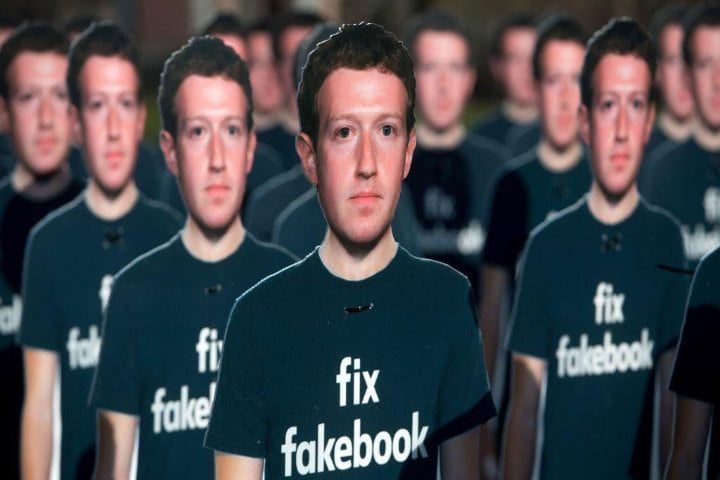
The impact of internet on this problem is amplified by social media platforms, where fake news can spread rapidly through echo chambers and algorithmic filters that reinforce users’ existing beliefs. This includes the spreading of false information during elections, health crises (such as the COVID-19 pandemic), and other significant events.
Moreover, people with vested interests take advantage by spreading fake news and misleading information to deceive and manipulate audiences for political or financial gain. This makes it harder than ever to separate truth from lies in today’s digital world.
Solutions for Navigating the New Information Order
Individuals need to cultivate media literacy skills to navigate this new information landscape. This involves developing the ability to critically evaluate the credibility and reliability of online sources, fact-checking information before accepting or sharing it, and seeking out diverse perspectives to gain a well-rounded understanding of complex issues.
By incorporating media literacy programs into curricula, future generations can be empowered to critically evaluate online content, resist manipulation, and contribute to a more informed and democratic society.
One effective strategy for combating fake news is to diversify news sources. Rather than relying solely on social media feeds or a single news outlet, each responsible citizen should explore a range of reputable sources, including established news websites, academic journals, and well-researched documentaries. Exposing oneself to various viewpoints and facts can help develop a more nuanced and accurate understanding of the world.
Moreover, engaging in open and respectful dialogue with others with different opinions can help break down echo chambers and promote a more informed public discourse. By actively seeking out and considering alternative perspectives, individuals can challenge their own biases and assumptions, leading to a more comprehensive and empathetic understanding of complex societal issues.
The CUET UG Mass Communication syllabus contains this topic under the New Media section.

